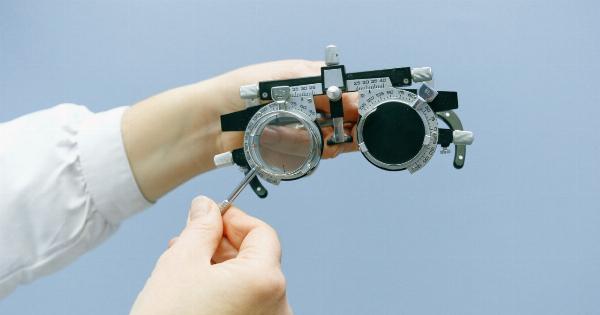Vitamin E is an essential nutrient that plays a crucial role in the body’s overall health and functioning. It acts as a powerful antioxidant, protecting our cells from damage caused by free radicals.
Additionally, vitamin E is actively involved in maintaining the health of our immune system, skin, eyes, reproductive system, and much more.
The Importance of Vitamin E
Despite its significance, many people unknowingly suffer from vitamin E deficiency. This can lead to various health problems and hinder the body’s ability to function optimally.
Let’s explore the nine signs that indicate you may have a vitamin E deficiency:.
1. Dry, Irritated Skin
Vitamin E plays a crucial role in maintaining skin health and preventing dryness. If you frequently experience dry and irritated skin, it may be a sign of vitamin E deficiency.
By supplementing your diet with enough vitamin E, you can improve your skin’s moisture and alleviate any discomfort.
2. Muscle Weakness
Vitamin E is not only vital for maintaining the strength and integrity of our muscles but also for their proper functioning. Experiencing muscle weakness, cramps, or difficulty with coordination may be indicative of a vitamin E deficiency.
Ensuring an adequate intake can help reverse these symptoms.
3. Vision Problems
Vitamin E helps protect our eyes from oxidative stress and degenerative diseases. If you frequently struggle with blurred vision, dry eyes, or have trouble seeing in low light conditions, it is essential to evaluate your vitamin E levels.
4. Nerve Damage
Nerve cells can take a hit when there is vitamin E deficiency, leading to neuropathy or nerve damage. Symptoms may include numbness, tingling, and loss of sensation in the hands and feet.
Adequate vitamin E intake can help prevent or alleviate these nerve-related problems.
5. Cognitive Decline
Studies have shown that vitamin E plays a significant role in protecting brain cells from oxidative stress, thus reducing the risk of cognitive decline and neurodegenerative disorders.
Poor memory, difficulty concentrating, and a decline in overall cognitive function can be signals of vitamin E deficiency.
6. Weakened Immune System
Vitamin E is crucial for maintaining a robust immune system, as it enhances the activity of immune cells and protects them from damage.
Frequent infections, slow wound healing, and overall weakened immune response might indicate a deficiency in vitamin E.
7. Hormonal Imbalance
Vitamin E is linked to the production and regulation of hormones, especially those related to reproduction.
A deficiency in vitamin E can disrupt hormonal balance, leading to irregular menstrual cycles, decreased fertility, and other reproductive issues.
8. Muscle Degeneration
Inadequate levels of vitamin E can contribute to muscle degeneration and weakness over time. If you notice a gradual loss of muscle mass or struggle with muscle repair and recovery, it is essential to consider your vitamin E intake.
9. Anemia
Vitamin E deficiency can hinder the production of red blood cells, leading to a type of anemia known as hemolytic anemia. Symptoms may include fatigue, weakness, and shortness of breath.
Ensuring sufficient vitamin E levels can aid in maintaining healthy blood cell production.
Final Thoughts
Vitamin E is essential for overall health and functioning, and a deficiency in this nutrient can lead to a range of health problems.
If you experience any of the symptoms mentioned above or suspect vitamin E deficiency, it is crucial to consult a healthcare professional for proper diagnosis and guidance.
Incorporating vitamin E-rich foods into your diet or taking supplements can help restore optimal levels and promote a healthier, more vibrant life.




























